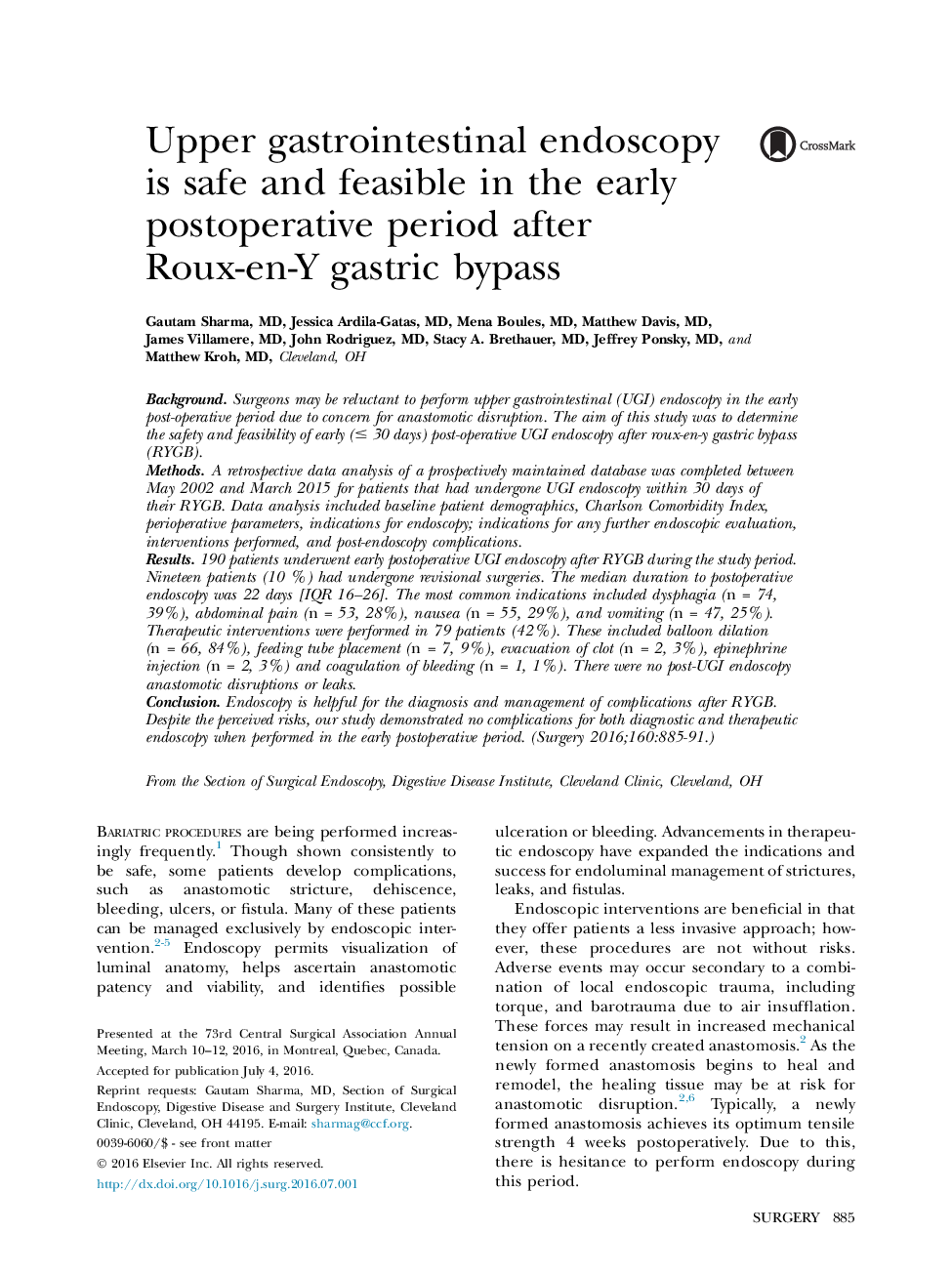| Article ID | Journal | Published Year | Pages | File Type |
|---|---|---|---|---|
| 4306344 | Surgery | 2016 | 7 Pages |
BackgroundSurgeons may be reluctant to perform upper gastrointestinal (UGI) endoscopy in the early post-operative period due to concern for anastomotic disruption. The aim of this study was to determine the safety and feasibility of early (≤ 30 days) post-operative UGI endoscopy after roux-en-y gastric bypass (RYGB).MethodsA retrospective data analysis of a prospectively maintained database was completed between May 2002 and March 2015 for patients that had undergone UGI endoscopy within 30 days of their RYGB. Data analysis included baseline patient demographics, Charlson Comorbidity Index, perioperative parameters, indications for endoscopy; indications for any further endoscopic evaluation, interventions performed, and post-endoscopy complications.Results190 patients underwent early postoperative UGI endoscopy after RYGB during the study period. Nineteen patients (10 %) had undergone revisional surgeries. The median duration to postoperative endoscopy was 22 days [IQR 16–26]. The most common indications included dysphagia (n = 74, 39%), abdominal pain (n = 53, 28%), nausea (n = 55, 29%), and vomiting (n = 47, 25%). Therapeutic interventions were performed in 79 patients (42%). These included balloon dilation (n = 66, 84%), feeding tube placement (n = 7, 9%), evacuation of clot (n = 2, 3%), epinephrine injection (n = 2, 3%) and coagulation of bleeding (n = 1, 1%). There were no post-UGI endoscopy anastomotic disruptions or leaks.ConclusionEndoscopy is helpful for the diagnosis and management of complications after RYGB. Despite the perceived risks, our study demonstrated no complications for both diagnostic and therapeutic endoscopy when performed in the early postoperative period.
